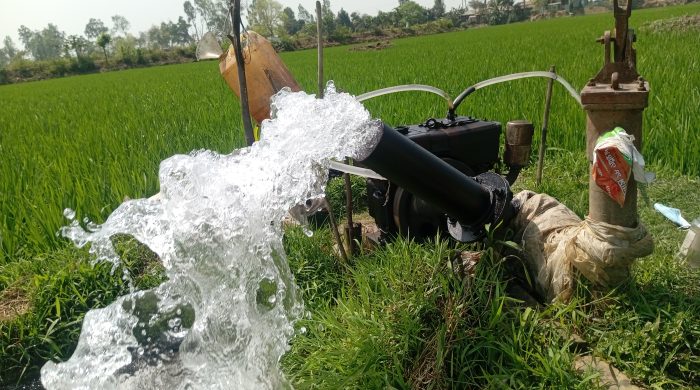Sirajganj: The prices of diesel and electricity for irrigation have increased. In addition, the prices of fertilizers, pesticides and laborers have increased. This is increasing the cost of Boro paddy cultivation. This time, farmers in Tarash, Sirajganj, are spending an additional Tk 5,000 per bigha of land on Boro paddy cultivation. Farmers say that the cost of Boro cultivation is increasing. But if they do not get higher prices for paddy at the end of the season, their production costs will not increase. They have demanded an increase in the price of paddy and rice in the government procurement campaign.
According to the Tarash Upazila Agricultural Extension Department, this season, a target has been set to plant Boro rice on 22,510 hectares of land in the upazila. Boro rice has already been planted on 18,130 hectares of land. This is because mustard has been cultivated extensively in Tarash Upazila this year. Farmers are planting Boro rice in full swing by taking that mustard home. This year, seedlings of other varieties of rice including Jira Shine variety Bri Dhan-29, Bri Dhan-58, Bri Dhan-74, Bri Dhan-81, Bri Dhan-84, Bri Dhan-86, Bri Dhan-88 and Bri Dhan-89 have been planted in the upazila. The planting will continue until March 15.
On the spot, it was seen in some unions of Tarash Upazila that farmers are busy with harvesting after planting Boro rice seedlings. Some are also preparing to plant Boro rice by harvesting potatoes and mustard from the fields. At this time, there is a labor shortage and wages are high.
Talking to farmers, it is known that in the last Boro season, the cost of producing Boro on one bigha (33 percent) of land was about 12,500 taka. And this year it will be more than 18,000. In the last Boro season, the cost of irrigation per bigha of land was 1,200 taka, this year it has increased to 1,600 taka. Per kg of seed was 200 taka, this time it has increased to 350 taka. In addition, the cost of fertilizer has increased from 2,000 taka to 3,500 taka. At the same time, pesticides have increased from 600 taka to 1,000 taka, and the wage for planting rice has increased from 800 taka to 1,000-1,200 taka. Apart from this, there are many other costs.
Md. Azizul, a resident of Tarash municipality, said, “Due to the increase in the prices of diesel and electricity, irrigation costs are increasing this time. Apart from this, the prices of everything including seeds have increased.”
Sultan Rahman of Boalia village in Sadar union of the upazila said, “This year, we have cultivated Boro rice on about six bighas of land. Compared to last year, the cost of cultivating Boro rice is much higher this year. Last year, the cost of taking irrigation water per hour was 100-110 taka. This year, it has increased to 150-160 taka per hour. In addition, we have to buy fertilizer at a higher price, and the prices of pesticides and seeds have also increased.”
Farmer Shyamalal of Madhainagar Union area said, “The wages are high, so I am taking care of the family with my mother, wife and son. Still, the expenses are high.” Ratan Sarkar of that area said the same thing, he is doing the hoeing alone.
Akram Hossain, a resident of Kalidasnili area of Naoga union in the same upazila, has started planting Boro rice on five bighas of land this year. He said that with the cultivation of Boro rice, the price of everything has increased. And therefore the cost of rice production is also increasing.
Tarash Upazila Agricultural Extension Officer Md. Abdullah Al Mamun said, Boro cultivation requires additional irrigation. To reduce costs, farmers are being advised to use moderate irrigation and use fertilizers and pesticides according to the rules.
Ordinary farmers of Tarash Upazila say that we are uncertain about whether we will get a suitable price for paddy at the end of the season. For this, the government needs to strengthen its procurement campaign along with monitoring the paddy and rice market.
